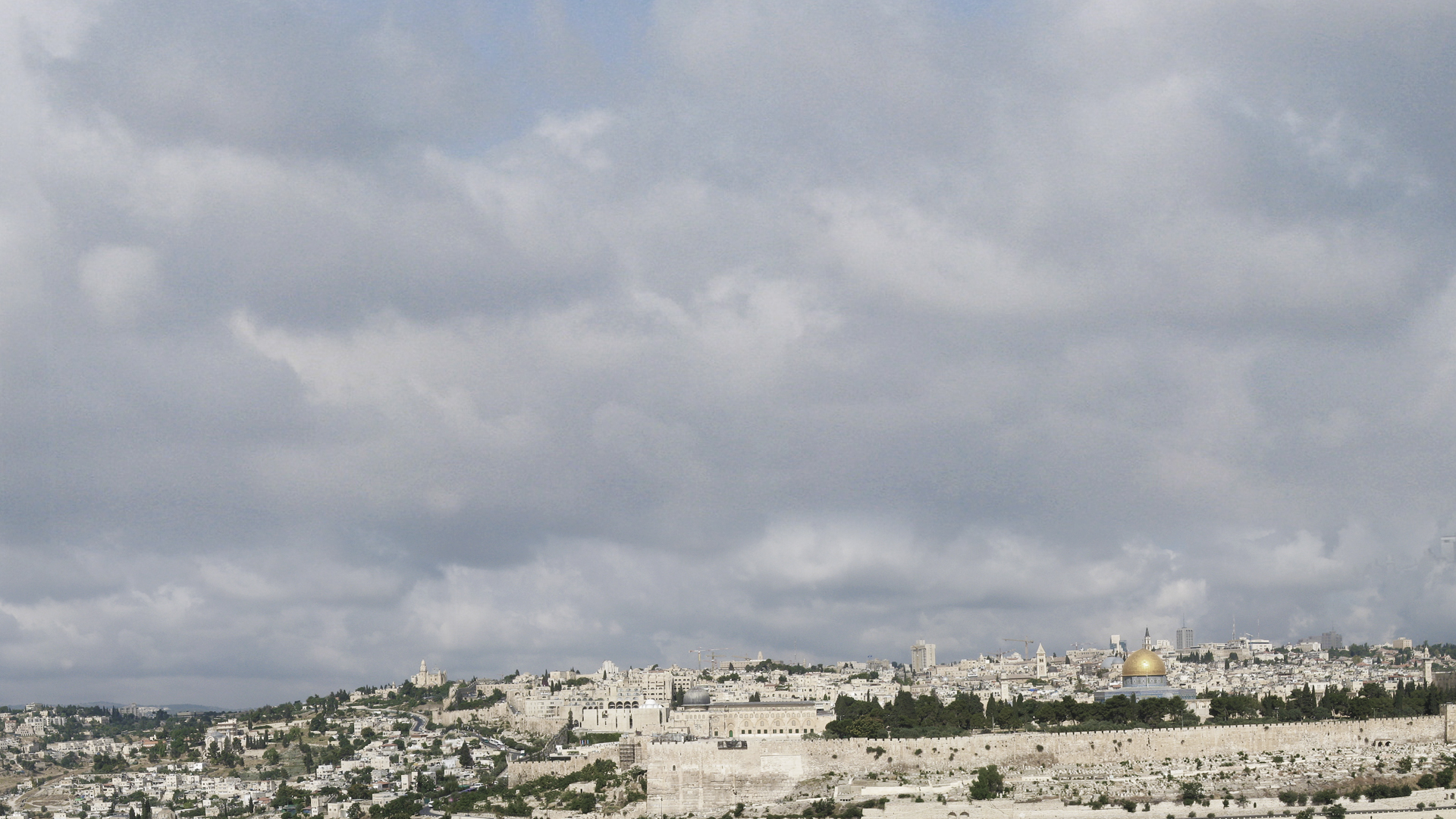This week is Palm Sunday, which celebrates Jesus’ humble entry on a donkey into Jerusalem the week before his death. But when Jesus saw the city in the midst of all the shouts of welcome and praise, he did something unexpected. He wept, for he knew the city would reject him.
Jesus’ lament over the city is haunting–“If you had known in this day, even you, the things that make for peace” (Luke 19:42).
I just returned from Israel this week, and the city of Jerusalem continues to be saturated in conflict as Arabs and Jews (and Christians and Muslims) all struggle to find peace. Yet Jesus’ words still apply–it seems that so many do not know the “things that make for peace.”
We, too, experience conflict in our lives. We don’t have to look far to find it in our own families or friendships or workplaces or culture or politics. What is your strategy for peace? And–to borrow Jesus’ phrase–do you know the “things that make for peace?”
Podcast
Podcast: Download (Duration: 49:47 — 57.0MB)
Downloads
Notes See It Be It Video Audio iTunesSEE IT // BE IT
(Weekly Community Group Discussion Guide)
Date: March 20, 2016 // Title: Palm Sunday: The King’s Visitation
Scripture: Luke 19:28-44
SERMON REVIEW 5-10 minutes
ARRIVAL / SOCIAL TIME 15-20 minutes
Spend the first 15 minutes or so of your time together catching up and socializing with one another. Also find time to catch up together on how the assignments from last week turned out.
SERMON REVIEW 5-10 minutes
Luke’s version of the Triumphal Entry shows us two scenes side by side: Jesus riding on a donkey into Jerusalem and Jesus weeping over the city. We see humanity divided—their expectations shaping their abilities to see God at work; a city doomed— unable to recognize the things that made for peace; and the King coming to His destiny, the “kairos” moment when God intersects with time.
THE MAIN THOUGHT Keep this in mind as you facilitate discussion.
Peace is not the absence of conflict but the presence of wholeness.
SEE IT Questions :: 10-15 minutes
Picture: Why do you think Luke recorded these two stories back-to-back in his gospel? What story is he telling? How did the disciples’ expectation shape their ability to see what was happening? Conversely, how did the Pharisee’s expectation reveal what they thought was happening?
Mirror: Do I recognize Jesus as King? How might my culture be shaping my expectation/ability to recognize what is truly good? We long for peace: the presence of wholeness. How am I pursuing it? What is my strategy?
Window: How can you practice recognizing the things that make for peace? How can you press into those things in your sphere of influence?
BE IT – Practice
Change UP // Exercise 15 minutes
Create space to listen to God. Imagine that He is looking over your life (like Jesus stood and looked over Jerusalem in the passage). What might He weep over? What might He be coming to visit? Ask Him to open your eyes so you can see what He is doing and the things that will lead you to Him. Write down what He says to you. Peace is the presence of wholeness. Jesus is your peace! Let Him bring wholeness into areas of brokenness.
Change IN // Group Activity 5 minutes
We invite you into an activity known as Passing the Peace. From the beginning Christians have exercised this practice. “Peace be with you” is a greeting Jesus himself used with his disciples (Luke 24:36; John 20:19, 26). The apostle Paul opened each of his letters with the words “Grace and peace be with you” (Rom. 1:7; 1 Cor. 1:3; 2 Cor. 1:2). Have each person identify one area where they need the peace passed to AND one area they are able to pass the peace to someone else. Think of it in terms of these areas: personal, family, work, national, and global. Take turns sharing those things and Passing the Peace to each other, saying, “Peace be with you.” Then reply, “And with you.”
Change OUT // Life Application Assignment 5 minutes
We know that you have been making plans for Easter, as it relates to how God might be calling you to reach out to those around you. Finalize any plans that need to be made, either for Maundy Thursday gathering with your community and/or inviting someone to attend an Easter gathering with your family (7:00 *baptism and sunrise gathering, 8:30, 10:00, 11:30, and 5:15 PM).
CLOSING PRAYER 5 minutes
Take a few minutes to gather any prayer requests and pray for each other to SEE IT and BE IT this week.

